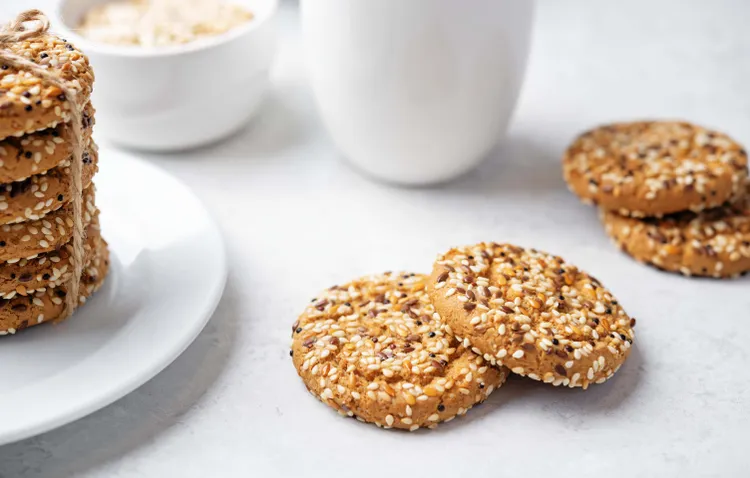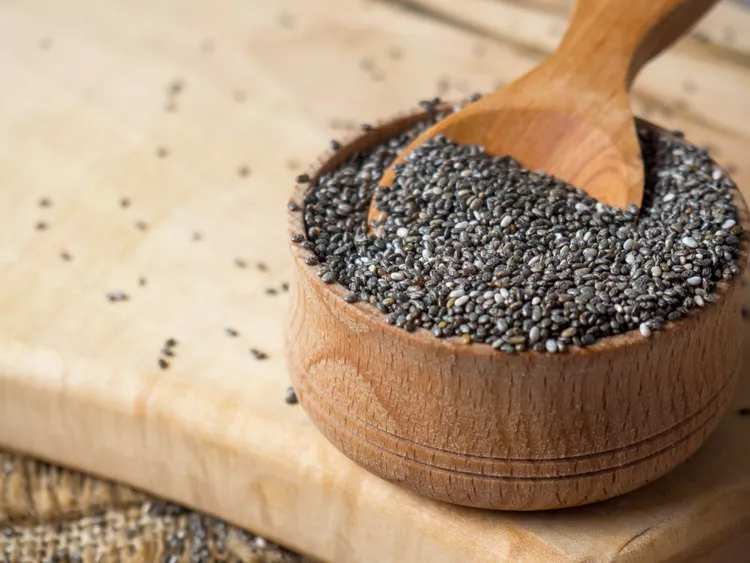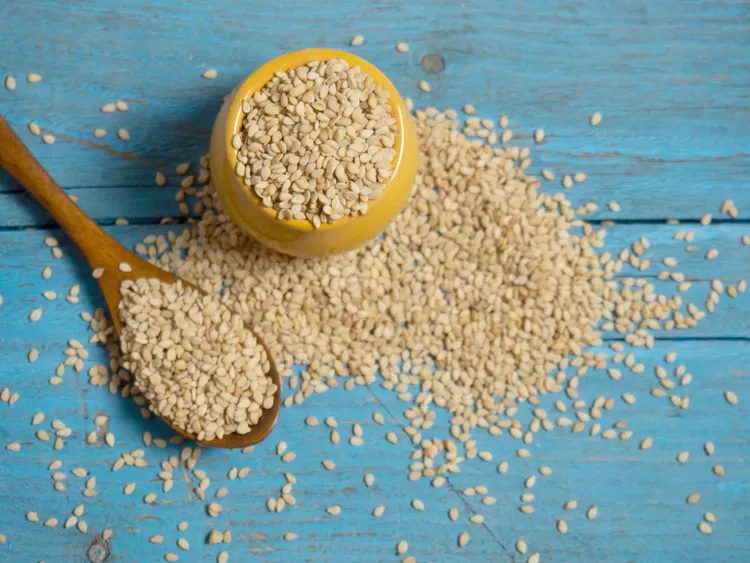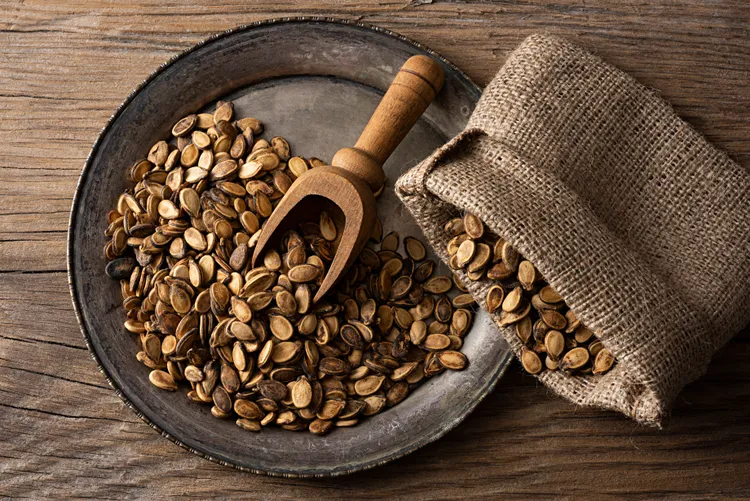6 of the Healthiest Seeds You Should Be Eating, According to a Nutritionist
- Martha Stewart
- Aug 1, 2025
- 4 min read

KEY POINTS
Eating a variety of seeds daily can boost your heart health, digestion, energy, and protect against disease.
Seeds are packed with essential nutrients, including fiber, protein, and healthy fats, that support heart and digestive health.
Some seeds contain powerful compounds that may help reduce inflammation, support hormones, and protect against chronic diseases.
Seeds are easy to incorporate into your everyday meals—simply sprinkle them on foods or blend them into smoothies and baked goods.
Seeds are some of the healthiest things you can eat. It’s incredibly easy to reap the natural health benefits of these tiny superfoods. In fact, it's almost hard to believe how much nutritional goodness is crammed into some of the smallest foods on earth. But it makes perfect sense that seeds would be brimming with nutrients, since they’re built to sustain a plant at its earliest stages of life. Fortunately, we can also reap these remarkable benefits by incorporating seeds into our diet. They’re the perfect addition to salads, baked goods, smoothies, oatmeal, and even your snack bowl (alongside healthy nuts). Ahead, we spoke to a registered dietitian who shar some of the healthiest seeds to add to your pantry.
Lauren Manaker, MS, RDN, LD, CLEC, registered dietitian at Nutrition Now Counseling
Chia Seeds

A true superfood, chia is a popular staple for anyone prioritizing cardiovascular health and long-term satiety. “Chia seeds are packed with omega-3 fatty acids, fiber, and protein, making them a great choice for heart health, digestion, and keeping you full,” says nutritionist Lauren Manaker. In fact, chia is an exceptional source of fiber, with only a one-ounce serving providing about 35 percent of your daily fiber needs. Not to mention the minerals they pack, too.
Chia seeds significantly expand by absorbing liquid, which can make you feel fuller for longer and stave off hunger and cravings. They have a very neutral flavor, so they’re easy to sneak into things like smoothies or yogurt, but also make a great star ingredient in the ever-popular chia pudding, which you can tweak to your liking with other sweet and savory additions.
Flaxseeds

Flaxseeds are one of the richest natural sources of alpha-linolenic acid (ALA), a crucial omega-3 fatty acid. They’re also high in lignans and fiber, a combination of which helps lower cholesterol and supports heart health, as Manaker points out. But these glossy little brown seeds might be most impressive for their proteins (like albumins, globulins, and glutelins), which have been shown to possess anticancer properties.
You’ll best absorb the nutrients from flaxseeds when they’re ground up, advises Manaker. Sprinkle ground flax seeds over your cereal, oatmeal, or yogurt; use them in batter for pancakes or baked goods, or add them to shakes and energy bites. You can also use them as an egg substitute in baking.
Pumpkin Seeds (Pepitas)

You may think of pumpkin seeds primarily as a crunchy roasted snack, but they are also extremely healthy. They are loaded with protein, healthy fats, and minerals like magnesium, and zinc, which, according to Manaker, makes them great for your heart, immune system, and energy levels.
Pumpkin seeds are most often eaten lightly roasted, but you can also buy cold-pressed pumpkin seed oil which makes for an aromatic addition to salads or soups—both will provide you with the health benefits.
Sesame Seeds

Another tiny seed, the sesame, actually brings much more to the table than its inconspicuous presence may suggest. These seeds are high in plant-based protein, healthy fats, vitamins, especially B, and minerals. However, they also deliver compounds called lignans, which act as potent antioxidants and have the ability to combat oxidative stress in the body, thereby lowering the risk of chronic diseases and supporting healthy aging. “The lignans in sesame seeds, like sesamin, sesamol, and sesamolin, play a protective role in preventing bone loss and improving conditions like osteoporosis and arthritis in postmenopausal women,” says Manaker. Daily consumption of sesame may help with hormone health, which is another plus for women during menopause.
Sesame seeds are easy to sprinkle on just about anything, from stir-fries to salads. Tahini, essentially a sesame butter, is another easy and tasty way to incorporate a good dose of sesame seeds into your diet. You can use it as you would any other nut butter or turn it into a base for smoothies, salad dressings, and other quick condiments.
Hemp Seeds

Hemp seeds come from the cannabis plant, but they are derived from a different variety of the plant than marijuana and are used in a completely different way—mostly for their nutritional benefits. And there are many! These seeds are more than 30 percent fat and are an excellent source of omega-3 and omega-6 fatty acids. They’re also a great source of high-quality plant protein, with as much as 25 percent of their calories coming from protein. Finally, they also pack a punch in the fiber, vitamin, and mineral department, with high levels of vitamin E and minerals. All this makes them beneficial for cardiovascular health, lowering the risk of heart disease, as well as promoting good digestion and reducing inflammation.
You can consume hemp seeds raw or toasted. Try them sprinkled on oatmeal, yogurt, salads, or add them to smoothies or baked goods.
Watermelon Seeds

“This one might surprise you, but watermelon seeds are incredibly nutritious,” says Manaker. And it definitely did surprise us because watermelon seeds rarely get mentioned as a nutritional powerhouse but, that’s exactly what they are. Thanks to their high levels of protein, healthy fats, magnesium, and iron. As such, they support healthy blood pressure and cholesterol levels, the immune system, and skin and bone health.
The next time you buy watermelon, Manaker suggests collecting the seeds and roasting them with a pinch of salt. They make a crunchy treat and are a tasty addition to your trail mix.




















Comments